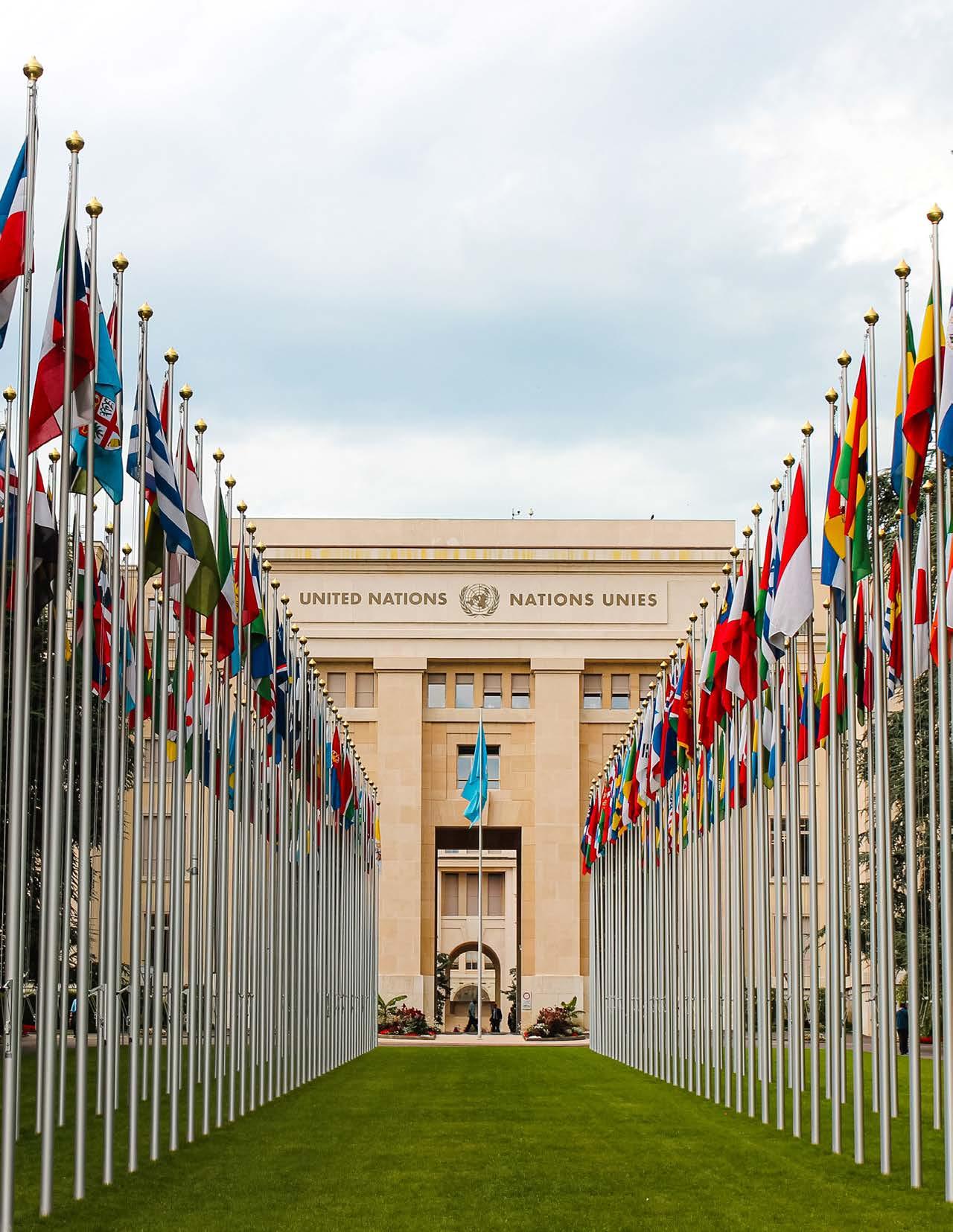
2022–2023
Ideological diversity is one of the hallmarks of our law school community at Pepperdine. In fact, our faculty was reported to be the most ideologically balanced in a study of the legal academy conducted by researchers for the Journal of Legal Studies. Our students benefit greatly from this rich diversity of viewpoints because they are exposed to a variety of ideas across the political spectrum in their classrooms. I believe it makes them better lawyers and advocates for their clients, and on a larger scale, ideological diversity makes our communities and our countries more inclusive and less polarized.
The ability to resolve disputes with civility and respect is essential to our survival as a global community. I am proud that the top-ranked Straus Institute for Dispute Resolution is a leader in the field, equipping our students and professionals around the world with skills to solve complex, long-standing problems, and sustaining the movement and momentum toward peace.
Paul Caron Duane and Kelly Roberts Dean Pepperdine Caruso School of Law
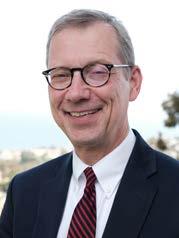
Inside Straus is the annual publication of the Straus Institute for Dispute Resolution at the Pepperdine Caruso School of Law. The institute also publishes the blog Inside Straus and an e-newsletter, Common Ground, for its audience of students, alumni, faculty, and friends.
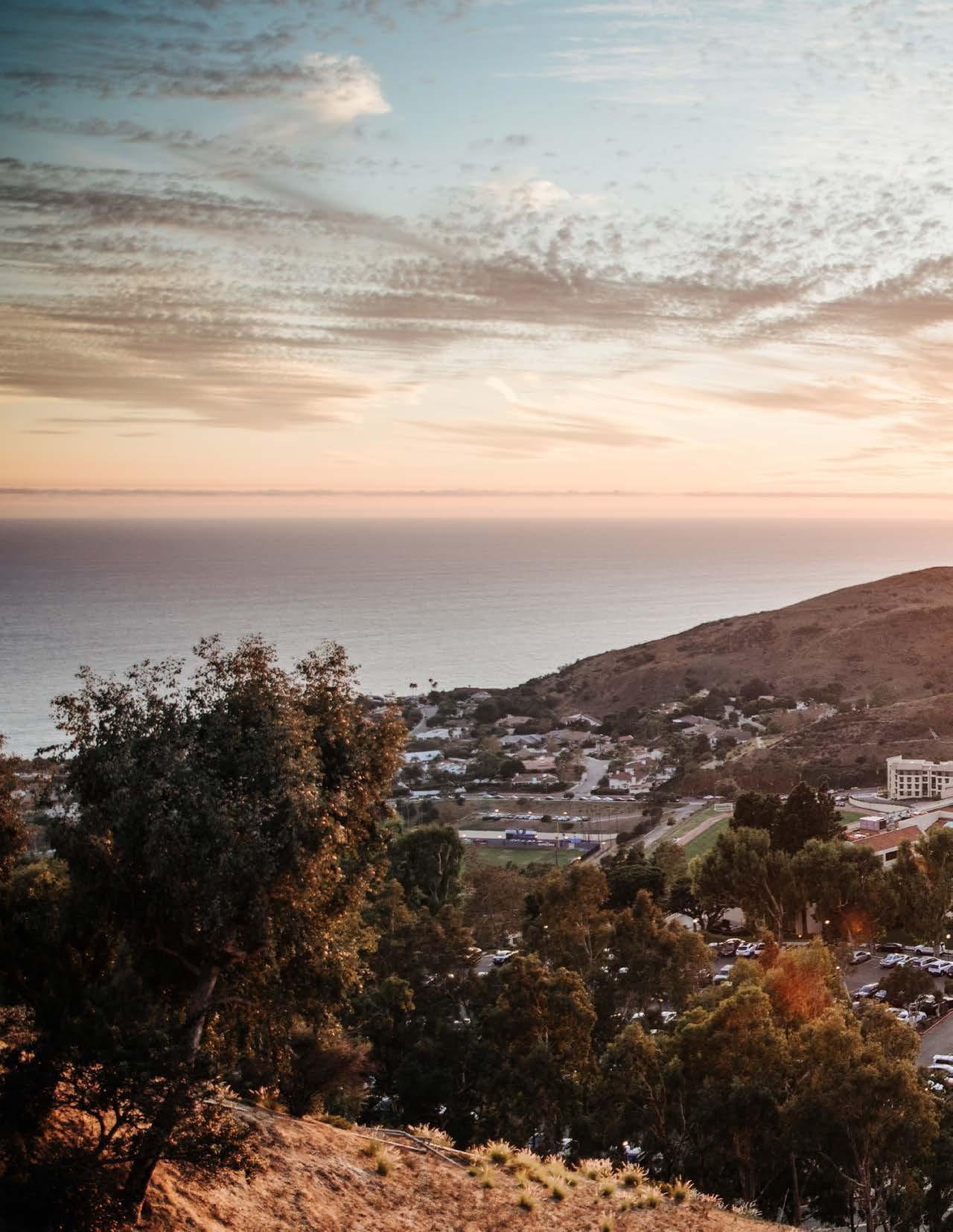
2022–2023
Inside straus
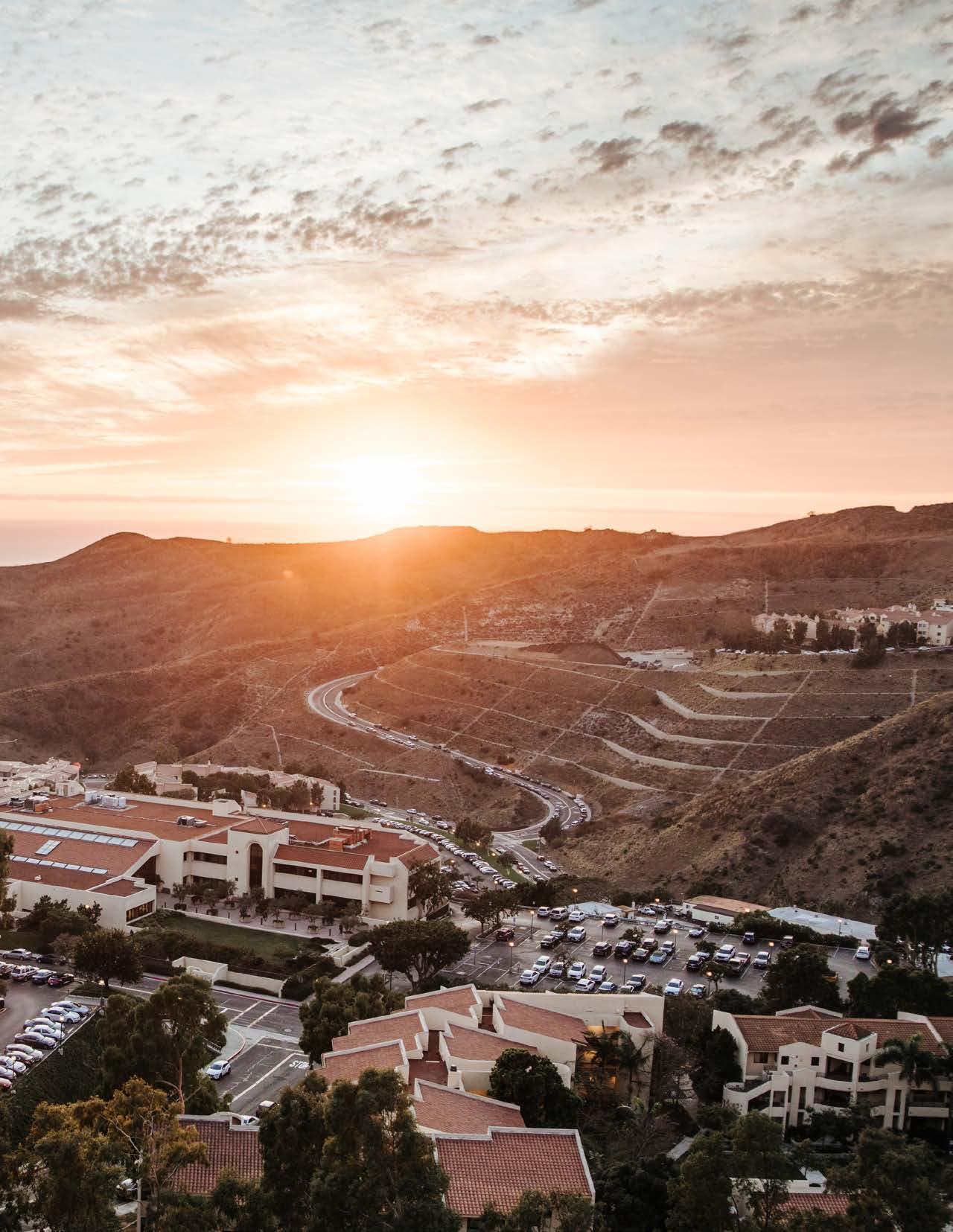
Contents 2 The Power of Listening 3 Faculty Scholarship and Presentations 6 Straus Around the World 8 International Stalemate: Dispute Resolution and Diplomacy 10 Straus Partners with SELPA Administrators of California 11 Spring Symposium Centers on Lessons Learned in the Pandemic 12 Second Annual Mediation Competition 13 Straus Hosts First-Ever Mini-Study Tour in Dispute Resolution 14 Students Making Waves 16 Straus Trains Los Angeles Police Department Personnel in Conflict Resolution 17 New Leadership in Online Programs
University 1
Pepperdine
The Power 0f Listening
Thirty-five years ago, Pepperdine University recognized the importance of alternative dispute resolution as a field of study, establishing the Straus Institute within its Caruso School of Law. A group of dedicated law professors saw that by equipping law students with skills in negotiation, mediation, and arbitration, they could impact litigation on a broad scale. Because these professors listened to their instincts, and in turn the University listened to their ideas, the Straus Institute has developed into an academic leader and pacesetter in the ADR field.
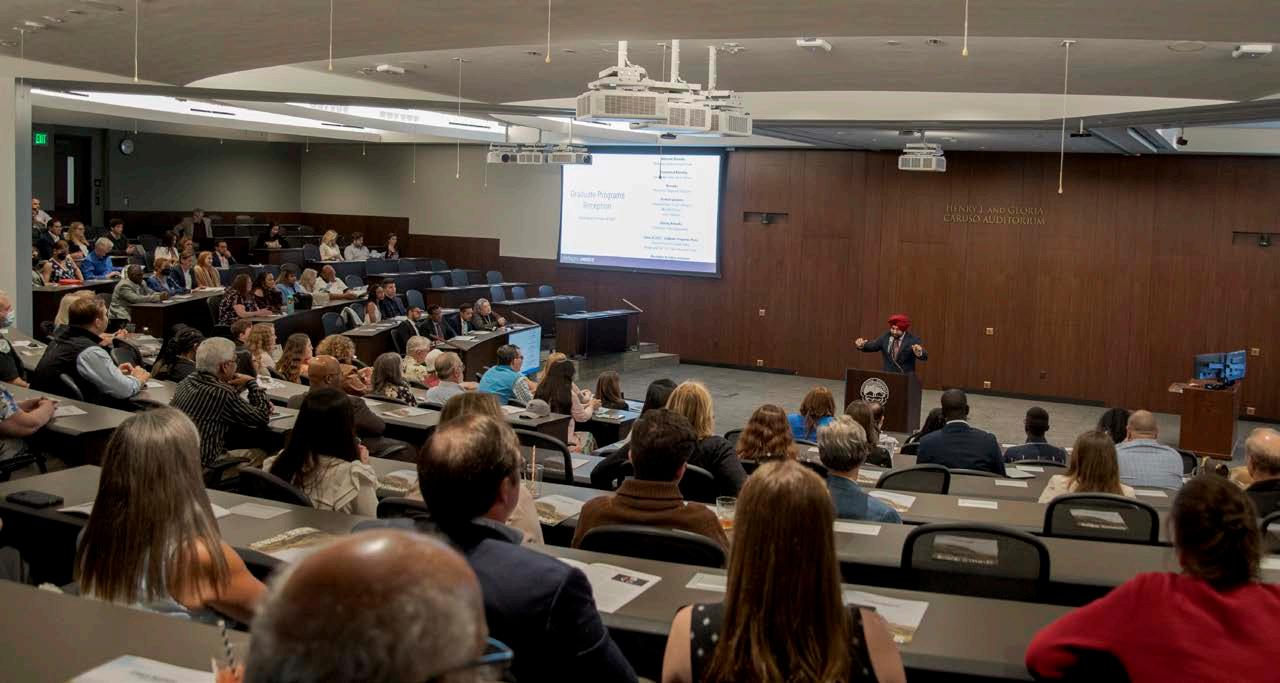
Listening is powerful. All aspects of conflict management call upon ADR professionals to listen—actively, empathetically, and at times, strategically—to understand what is required to move toward resolution. We teach this essential skill to students in our academic degree programs and to busy professionals in our training programs. And we practice it daily at the Straus Institute.
This year, we have listened to our students, organizing a spirited mediation competition to advance their skills, planning a first-of-its-kind study tour to San Francisco, and creating opportunities for professional connections by hosting various academic symposia and conferences. We have consolidated our in-person and online academic degree programs—creating a new graduate law programs team with Shaphan Roberts as our new director of online programs—to facilitate meaningful engagement and cultivate expanded opportunities for learning.
We have listened to our community, providing training and insights to public servants such as special education and law enforcement professionals in Southern California and beyond. We have been proud to partner with the cities of Los Angeles and Santa Monica to assist their residents with mediation services. We also collaborated with the Southern California Mediators Association to host the organization’s annual conference at our campus.
Lastly, we have listened to our mission, exploring and expanding dispute resolution around the world. The pages that follow discuss our efforts to cultivate relationships and enlarge the field by introducing ADR to new communities and constituencies on a global scale. Listening with open ears and hearts has enabled our institute to grow in inspiring ways, and our hope is that we continue to listen deeply for the next thirty-five years.
We wish you a peaceful year ahead and hope to see you at Straus soon.
Assistant
Dean, Graduate Law Programs
Judge Danny Weinstein
Director, Straus Institute for Dispute Resolution
Associate Professor of Law and Practice, Caruso School of Law
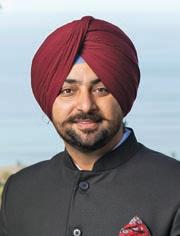 Sukhsimranjit Singh
Managing
Sukhsimranjit Singh
Managing
2
straus.pepperdine.edu
Faculty Scholarship and Presentations
Straus Faculty Present at Annual AALS ADR Works-in-Progress Conference
Professors Stephanie B. Blondell, Thomas J. Stipanowich, and Maureen A. Weston represented the Pepperdine Caruso School of Law at the AALS Alternative Dispute Resolution (ADR) 15th Annual Works-in-Progress Conference. The conference was hosted by the University of Oregon School of Law from Thursday, October 6, through Saturday, October 8, 2022. Since 2007 the Works-in-Progress Conference has brought together dispute resolution scholars and researchers to share their ideas and discuss their work in a rigorous and collegial atmosphere.
Offering talks reflecting their scholarship, Blondell presented “Legal Advice, Legal Information, Legal Fiction: Rethinking Mediation Table Skills with Pro Se Litigants.“ Stipanowich gave a lecture on the negotiation and conflict management skills of Abraham Lincoln, and Weston presented “Using ADR Skills to Adjust the Sport Mindset and Promote Mental Health.“
The Straus Institute was honored to host the AALS ADR Works-in-Progress Conference at Pepperdine University in 2021.

THOMAS J. STIPANOWICH
Professor Stipanowich delivered a presentation entitled “The Lincoln Way: Abraham Lincoln as a Problem Solver and Manager of Conflict“ at a meeting of the International Institute for Conflict Prevention and Resolution (CPR) on June 22, 2022. Stipanowich’s talk focused on two different periods in the life of President Lincoln: first, a time early in Lincoln’s career during which he was wrestling with two “affairs of honor,“ including one that resulted in his meeting another politician on a dueling ground and, second, Lincoln’s four years as a transformational servant leader presiding over the restoration of the Union and the emancipation of millions of enslaved Black Americans. Both subjects are among the topics of research for his forthcoming book, The Lincoln Way. Stipanowich also recently presented “The Singapore Convention on Mediation: Ethics, Guidelines, or Standards,“ at the 2022 International Bar Association Annual Conference in Miami, Florida.
MAUREEN A. WESTON
Professor Weston presented her article, “The Anxious Athlete: Mental Health and Sports’ Duty and Advantage to Protect,” at Harvard Law School on April 12. Weston’s presentation on athlete mental health was followed by a panel discussion offering the perspectives of Harvard golf team’s head coach Kevin Rhoads and student-athlete Chloe Royston.
Weston’s article is published in an edition of the Harvard Journal on Sport & Entertainment Law that the editors dedicated to the memory of her son Cedric Halloran. Weston and her husband Brian Halloran have established the Cedric Weston Halloran Scholarship Fund in Cedric’s honor to help Pepperdine Caruso Law students.
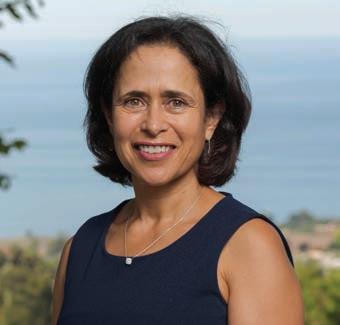
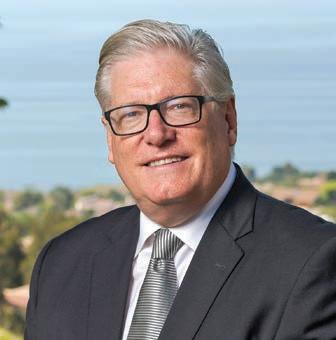
3 Pepperdine University
SUKHSIMRANJIT SINGH

Professor Sukhsimranjit Singh presented his work at Stanford Law School’s “Rethinking Systems Design for Racial Justice and Equity,“ a symposium held by its Gould Center for Conflict Resolution on February 25. Singh presented on a panel titled “Framing Reconciliation, Reparations, and Racial Justice in California and Beyond.” Scholars on the panel discussed their research on reparations and racial justice initiatives across the United States. Singh related his work on access to justice as well as his groundbreaking training of Los Angeles Police Department personnel on conflict resolution strategies.
Singh’s article, “In the Shadow of the Pandemic: Unearthing Unequal Access to Justice vis-à-vis Dispute Resolution“ was recently published in the Washington University Journal of Law and Policy. The article is featured in the journal’s winter volume, “New Directions in Dispute Resolution and Clinical Education in Response to the Pandemic Crisis,“ with a direct or indirect focus on race, ethnicity, gender, and poverty.
Singh was also a plenary speaker at the 14th Annual Conclave on Diversity in the Legal Profession, giving a talk entitled, “Negotiation Skills for Attorneys in Mediation: Balancing Diverse Interests and Backgrounds.” In addition, he presented at the 2022 American Bar Association’s Spring Conference focused on Dispute Resolution, where he gave the presentation, “Memory, Culture, and Mediation," which centered on cutting-edge research and applications in ADR on the role of memory.
STEPHANIE BLONDELL
Professor Stephanie Blondell presented the keynote address, “Interest Identification: The Secret Vocabulary of Conflict Resolution,” for the 2022 California Special Education Local Area Plan (SELPA) ADR Conference. The address was attended by more than 500 special education administrators, teachers, school psychologists, attorneys, parents, parent advocates, and general education teachers. The Straus Institute has had a partnership with California State SELPA since December 2021 and has trained hundreds of special education professionals in conflict resolution strategies.
On October 13 Blondell presented advanced mediation training for mediators and federal judges for the US District Court for the Western District of Missouri. The training was part of the Mediation and Assessment (MAP) 2022 Training and 30th anniversary of the court’s program. Blondell conducted a mediator panel on “Paradigm Shifts During the Pandemic“ and then gave a keynote speech entitled “Speediation,“ that addressed working with pro se litigants and the skills necessary to settle disputes in short time frames.
Blondell also spearheaded the Straus Institute’s 2022 Student Mediation Competition in March, bringing together student competitors, faculty, alumni, and distinguished judges and practitioners to evaluate the mediations and offer feedback to the participants.
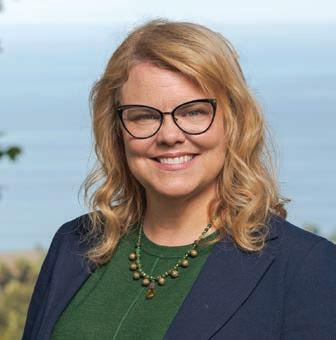
straus.pepperdine.edu 4
MICHAEL HELFAND
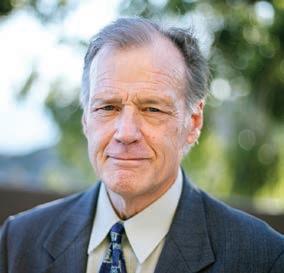
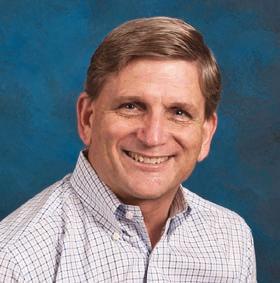
In March Professor Michael Helfand presented “Who Decides? Arbitrator Qualification Clauses in Religious Arbitration Agreements,” at the Canopy Forum at Emory Law School Center for the Study of Law and Religion. The presentation explored arbitration qualification clauses and how various courts have navigated their application in religious arbitration agreements.
PETER ROBINSON
Professor Emeritus Peter Robinson presented a two-part series focused on apology and forgiveness to the Beverly Hills Bar Association in April and October. Robinson discussed how apology and forgiveness can assist clients in de-escalating emotions and reaching resolution in mediations. Robinson also presented to the Oklahoma Bar Association’s ADR section on the topics of hypothetical offers, mediators’ proposals, and brackets.
TREY CHILDRESS
Professor Donald Earl (Trey) Childress participated in a meeting of the US State Department’s Advisory Committee on International Law on June 22. The committee, which advises the State Department on the practice of international law, is composed of leading practitioners and scholars in the field. Among other matters, the committee discussed international law issues related to the Russia-Ukraine conflict. Childress also serves on the US State Department’s Advisory Committee on Private International Law.
JACK COE
Professor Jack J. Coe published a book review on Procedural Issues in International Investment Arbitration, by Jeffery Commission and Rahim Moloo (Oxford University Press, 2018). The book review was published in July 2022 in ICSID Review—Foreign Investment Law Journal

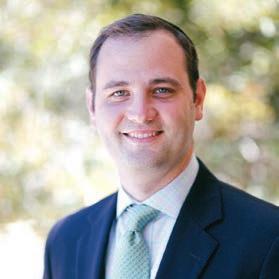
5 Pepperdine University
Straus Around the World
BRAZIL
On October 5 Professor Singh presented to the National Judicial Academy of Brazil, called the National School of Formation and Improvement of Labour Magistrates. The event took place in Brasilia, Brazil. The audience consisted of more than 200 judges, as well as 150 online participants.
“Culture has the power to change us all, and I am thankful for the transformation of my soul that my dear colleagues so generously provided,” stated Singh about his experience. “I learned that Brazilians deeply care about civility and are eager to better the field of dispute resolution.”
Singh was welcomed by Straus Institute alumni and Brazilian federal judges Fernando Hoffman (LLM ‘19) and Doroteia Mota (LLM ‘16). State judge Andre Gomma de Azevedo, who served as an adjunct professor, also met with Singh on his visit. Singh was presented with the 100th Medal of Honor, which was delivered by Justice Aloysio Corrêa da Veiga and Judge Platon Teixeira de A Neto.
CANADA
On June 9 Professor Singh gave a presentation at the International Academy of Mediators 2022 Conference held in Montreal, Canada. In his talk, “Reimagining Community: Moving Beyond Us and Them,” he spoke about the power of culture in creating communities of peace and the power of community engagement in sustaining peace.
Singh addressed the roles played by memory and forgiveness in facilitating and obstructing a culture of peace and shared his research on memory as it applies to peacemakers. Singh further provided tools for creating more opportunities for sustainable peace in local as well as global conflicts.
HONG KONG
Adjunct professor Peter Neumann represented Straus at the 2022 Hong Kong Arbitration Week. The annual gathering celebrated the triumphs and challenges of international arbitration while actively promoting the development of the practice in Asia.
INDIA
Professor Singh inaugurated the SAMAS partnership with SAGE Mediation and Madhyam on a trip to Agra, India, where he trained participants in leadership and mediation with adjunct professor and distinguished mediator Steve Rottman. This five-day program was attended by several high-ranking former Indian judges and leaders.
INDONESIA
An article by Straus Institute and third-year Caruso Law student Bazil Cunningham, “The Xinjiang Conflict: Why It’s Time to Try Mediation,“ has been selected for publication in the April 2022 edition of the Indonesian Journal of International & Comparative Law. The journal serves as an international forum for scholarly analysis that advances legal discouse. Cunningham’s article considers the treatment of the Uyghur population in China’s Xinjiang Province.
NETHERLANDS
Adjunct professor and distinguished mediator Leonardo D’Urso published an interview on recent mediation in Italy in a Dutch magazine,Tijdschrift Conflicthantering. D’Urso serves as the cofounder of ADR Center and has extensive experience resolving complex civil and commercial disputes. In the article, D’Urso discusses mediation provisions disputants may face prior to filing a lawsuit, regulations and standards Italian mediators abide by, and facets of Italian mediation that have led to its popularity in the country. At the Straus Institute, D’Urso teaches Selected Issues in Dispute Resolution: Designing Effective Roadmaps to Develop the Demand and Supply Sides of a Mediation Market.
straus.pepperdine.edu 6
NORWAY
Professor Thomas J. Stipanowich presented the keynote address at the second annual Norwegian Mediation Conference on August 24. The address, “Mediation in Evolution: Challenges and Opportunities for Norway and the World,“ focused on many issues raised by the growing use of mediation, including professional licensing or certification, institutionalization, contractual foundations for private dispute resolution, and mixed mode processes involving the interplay between settlement efforts and adjudication. The conference was held at the University of Oslo Faculty of Law in Oslo, Norway.
UGANDA
The Straus Institute embarked on a partnership with the Ugandan judiciary to offer online master of dispute resolution degrees to members of the judiciary and professionals at the Ugandan Ministry of Justice and the Ugandan Law Society. A cohort of Ugandan judges recently traveled to Pepperdine University to learn in person and connect with the institute’s various programs, including attending the International Stalemate Conference on November 11.
UNITED KINGDOM
Professor Maureen Weston presented “Key Cases and Developments in USA Sports Law“ at the Law In Sport Annual International Conference. Weston discussed the significant changes in college sports involving endorsement deals, conference realignment, and athlete rights issues. She also addressed the implications of sports betting, the National Football League’s disciplinary cases, and gains made in women’s sports.
The Law in Sport Conference brings together sports lawyers and key sport stakeholders from around the world to address cutting-edge topics in sports. The conference, titled “Understand the Rules of the Game 2022,“ was held in London, United Kingdom, on September 7 and 8.
7 Pepperdine University
International Stalemate: Dispute Resolution and Diplomacy
On November 11, 2022, the Straus Institute hosted a global conference titled “International Stalemate: Dispute Resolution and Diplomacy,“ in collaboration with the Weinstein International Foundation. The event explored how principles from mediation and dispute resolution may play a role in diplomatic interventions to long-standing conflicts on the world stage. The event drew a large number of in-person and virtual attendees, which included students, faculty, alumni, and ADR professionals from around the world.
The day began with welcome remarks by dean Paul Caron, Sukhsimranjit Singh, and Judge Danny Weinstein (Ret.), the founder of the Weinstein International Foundation, who also serves as Distinguished Mediator-in-Residence at Straus. The first panel—featuring Ambassador David Carden, professor Colleen Graffy, and Singh— explored conditions that contribute to stalemate. Carden discussed the conditions that led to stalemates that he witnessed as the US Representative to the Association for Southeast Asian Nations. Graffy gave examples of some modern-day stalemates on maritime disputes and shared strategies from ADR that may have contributed to their resolution. Singh focused on the importance of listening, perspective taking, and empathy in his remarks, which highlighted how polarization has contributed to stalemates, both domestically and abroad.
Judge Ann Williams (Ret.) shared commentary following the first panel discussion, sharing how stalemates of injustice— particularly in Africa where she has done significant work—can be resolved through dedicated advocacy and collaboration. Professor Tom Stipanowich also shared a keynote address titled “Diplomacy: the Lincoln Way,” in which he shared lessons in diplomacy from Abraham Lincoln’s life, including how he negotiated the 14th Amendment to end slavery.
The second panel was comprised of professor Trey Childress and Ambassadors Morse Tan and C. J. Mahoney. The panelists discussed their work in the US State Department to negotiate and litigate around stalemates.
The afternoon panel featured mediators in the field, including Sofia Ramyar and Helen Winter (LLM ‘17), who have worked extensively to promote conflict resolution education to refugees in Germany and from Afghanistan. Two senior fellows from the Weinstein Foundation, Ihsanullah Khan and Mushegh Manukyan, also joined virtually from Pakistan and New York, respectively. The mediators shared their work and strategies they employed in the field to break stalemates and divisions between conflicting parties and communities. Judge Rebecca Westerfield moderated the fascinating conversation. A visiting delegation of judges and professionals from the Ugandan judiciary was in attendance, and Uganda’s chief
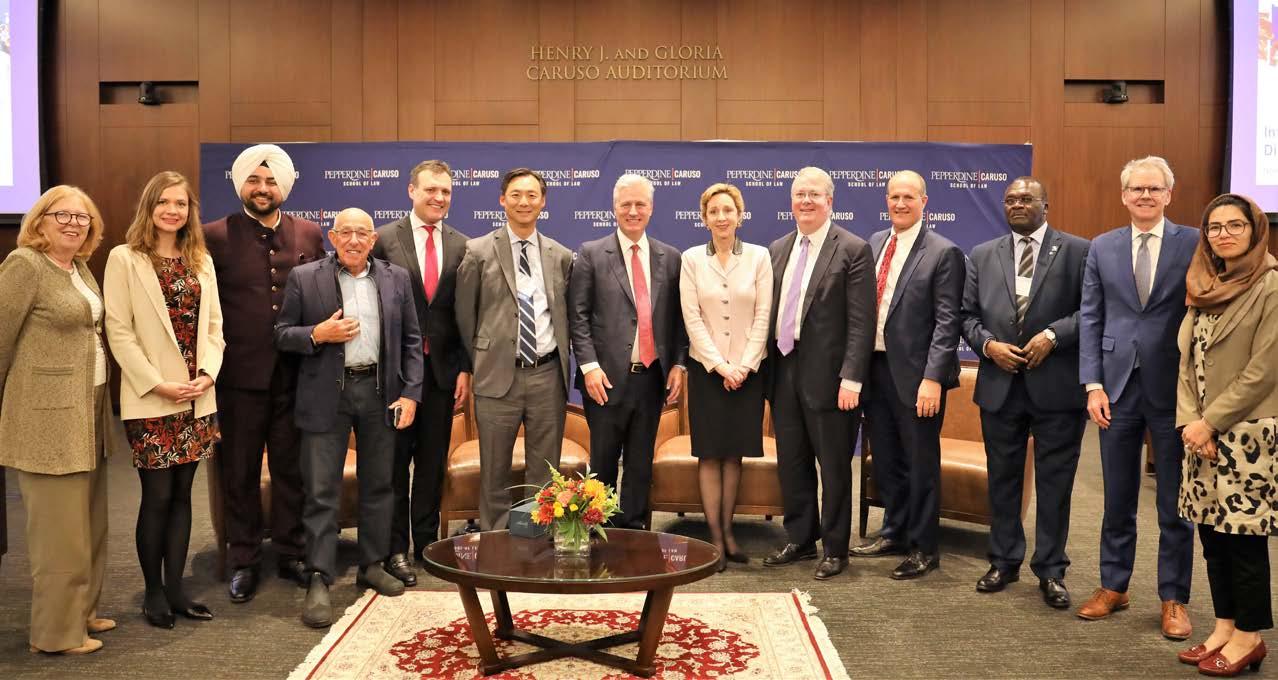
View Recording Here
straus.pepperdine.edu 8
justice, Alfonse Owiny-Dollo, provided remarks to the audience, sharing his support of the partnership between his institution and the Straus Institute.
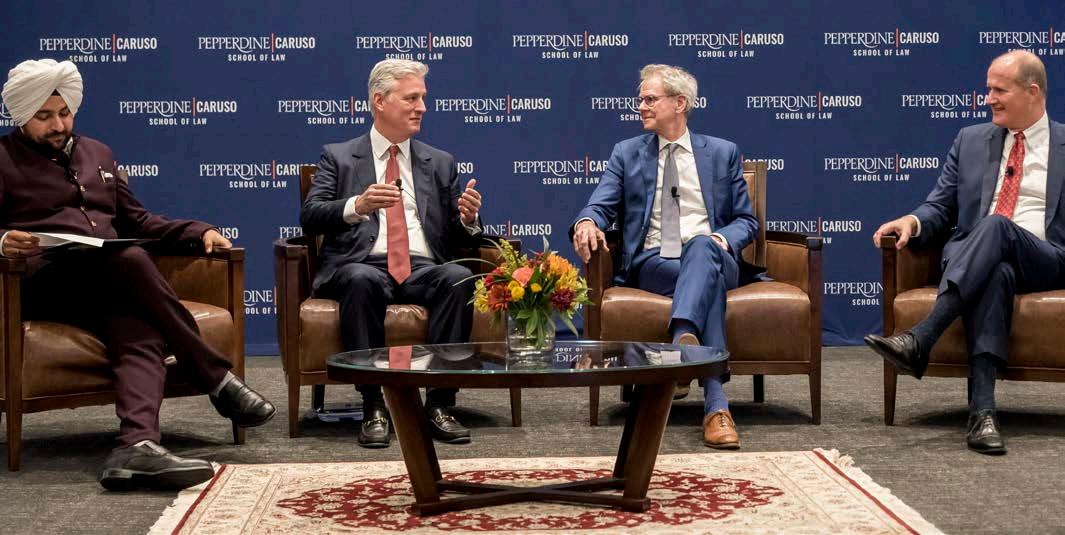
The conference’s keynote discussion featured Carden, former US national security advisor Ambassador Robert O’Brien, and Pepperdine University president Jim Gash (JD ‘93). Singh moderated the conversation. The panelists each shared their paths to peacemaking and both ambassadors shared insights from their careers in diplomatic service. Carden discussed the role that multilateral institutions can play in mitigating stalemates and the limits on their success. O’Brien discussed his work in negotiating the Abraham Accords as well as his work as special presidential envoy for hostage affairs, in which he negotiated the release of US citizens who were detained abroad. The riveting discussion enabled audience members to learn how principles in dispute resolution—listening, perspective taking, negotiation, and apology—can create momentum toward peaceful resolutions.
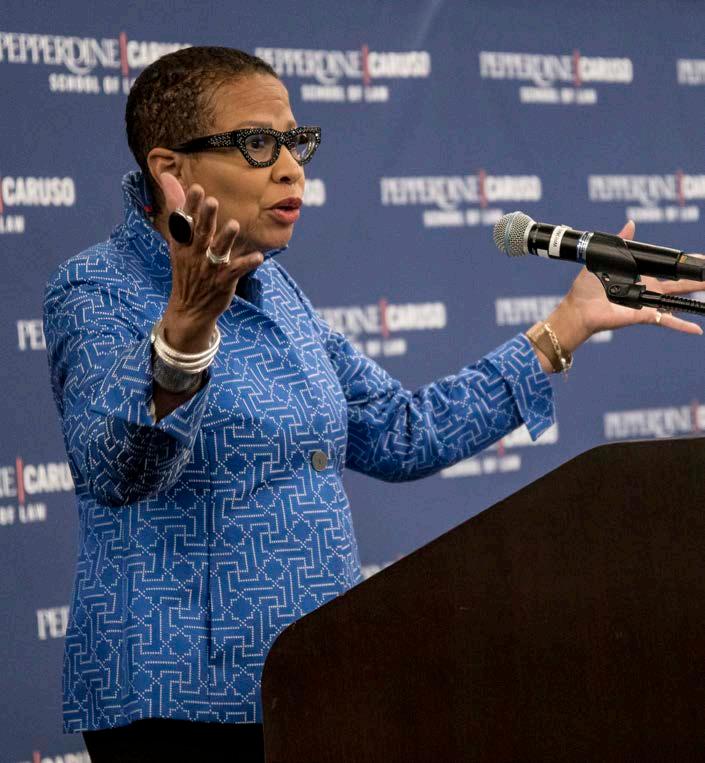 Judge Ann Williams (Ret.)
Judge Ann Williams (Ret.)
9
Left to Right: Professor Singh, Ambassador O’Brien, Ambassador Carden, Pepperdine University President Jim Gash
Pepperdine University
STRAUS PARTNERS WITH SELPA ADMINISTRATORS OF CALIFORNIA
The Straus Institute for Dispute Resolution partnered with the Special Education Local Plan Area (SELPA) Administrators of California to offer training on ADR practices for special education professionals across the state. In this innovative collaboration, the institute has shared its world-class training and deep knowledge of conflict resolution processes and mediation techniques with more than 500 individuals from SELPA, special education administrators with the Local Education Agency, and other education-related professionals to support their capacity to resolve and prevent disputes around special education. The Straus Institute designed and implemented virtual and in-person trainings geared toward participants in a variety of roles in the education field and serving diverse stakeholders across the state.
Professor Sukhsimranjit Singh added, “We are honored to collaborate with the SELPA Administrators of California
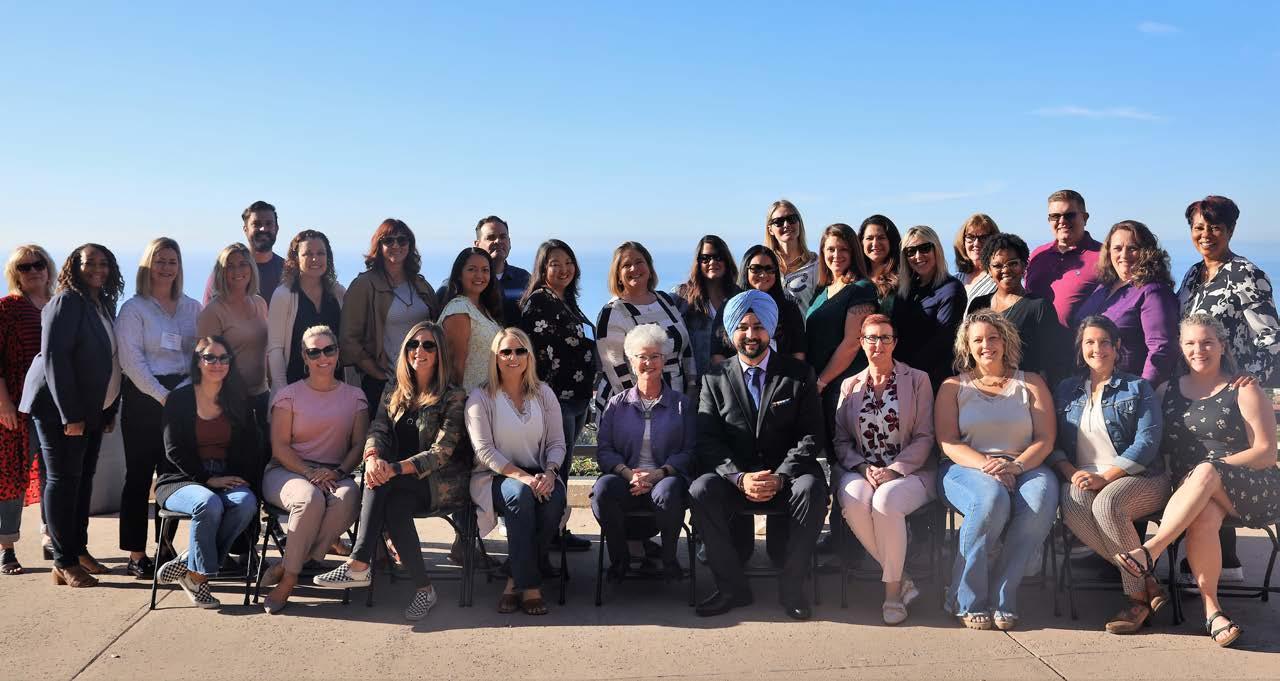
Straus has trained representatives in 250 school districts and SELPAs in California to date
and share our expertise in conflict resolution with education professionals across our state. During a time when these professionals have faced unprecedented challenges, it is our privilege to equip them with the skills and knowledge that can enhance their day-to-day efforts.”
“The SELPA Administrators of California are excited to partner with the Straus Institute in providing leadership in special education dispute prevention and resolution,” said Patty Methany, chair-elect and ADR Committee chair of the SELPA Administrators of California. “SELPA administrators have long been leaders in bringing the practices of alternative dispute resolution to resolving conflicts in special education. This partnership will enable educators to learn from internationally renowned experts in conflict resolution so that they can positively impact students with disabilities and their families during these challenging times.”
The first interactive training was held in December 2021, and subsequent training have been offered on nearly a monthly basis. Participants are trained in the foundations of the mediation process, unique negotiation styles, and facilitation of problem solving around educationrelated disputes, among other topics. This partnership is made possible through funding provided by the State of California to address dispute prevention and resolution in light of COVID-19.
straus.pepperdine.edu 10
Spring Symposium Centers on Lessons Learned in the Pandemic
On April 1 the Pepperdine Caruso Law Dispute Resolution Law Journal hosted its annual symposium in collaboration with the Straus Institute. The symposium, “Lessons Learned—Dispute Resolution and the Pandemic,“ brought together more than 100 students, practitioners, and academics on campus and was attended by many others online.
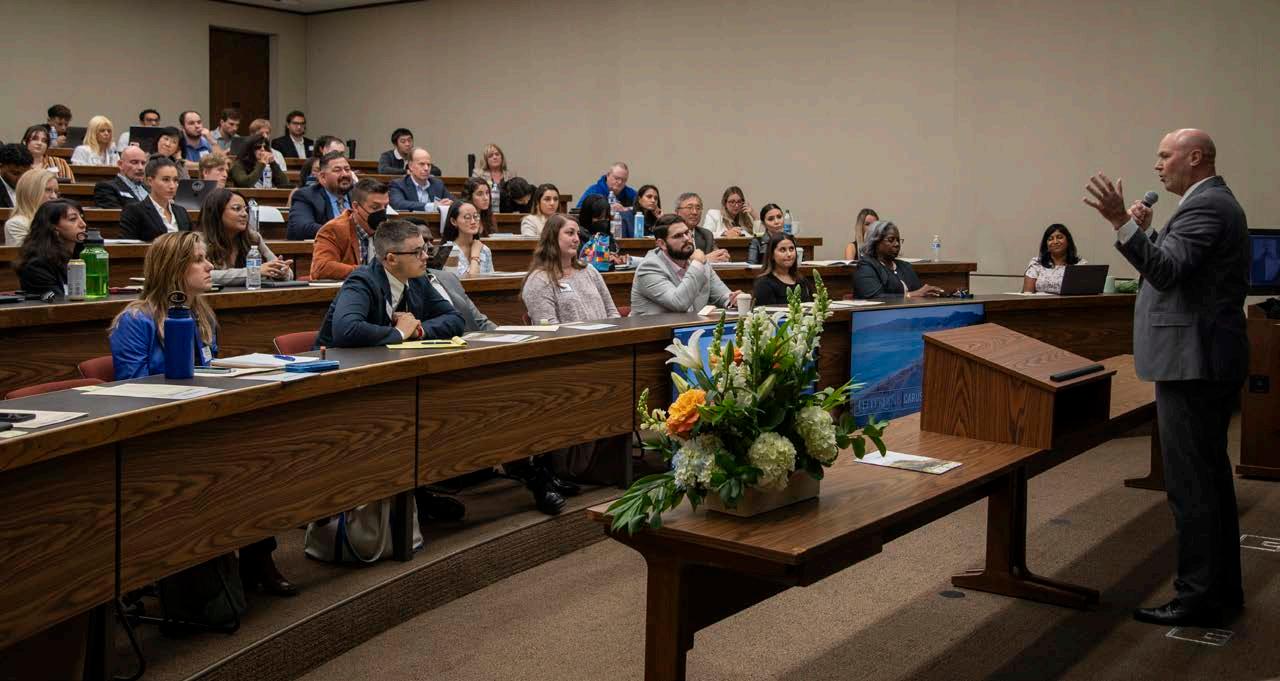
Distinguished speakers included former US ambassador David L. Carden, who began the symposium with a keynote address. In his remarks, Carden discussed the value of perspective taking in mediation, providing the audience with references to classical artists like Leonardo da Vinci and Pietro Berrittini and sharing his experience as a representative to Southeast Asian nations.
The event’s first panel, “Faith and Self-Reflection in Mediation Practice,” brought together a diverse, interfaith group of mediation practitioners including professor Sukhsimranjit Singh, Seaver College professor John Barton, who directs the University’s Center for Faith and Learning and also teaches Dispute Resolution and Religion for the Straus Institute, adjunct professors Aparna Gupta, Sarah Nissel, and Salim Munayer, and conflict resolution practitioner Zaza Johnson Elsheikh. Each speaker shared how their faith tradition informs their peacebuilding efforts and also the impact of self-awareness and reflection in the context of the pandemic.
The final panel was moderated by professor Maureen Weston, who serves as the journal’s faculty advisor. Singh presented his research on access to justice implications in connection with underserved community members’ ability to obtain dispute resolution processes. Professor Michael Green from Texas A&M University School of Law discussed how to address racial prejudice-based disputes in workplaces through modified and merged processes, and professor Deanna Pantin Parrish from Harvard Law School discussed dispute systems design in the context of voting and democratic participation.
Ambassador Carden gave closing commentary on the panels. Singh then introduced Pepperdine University vice president Danny DeWalt who shared conflict resolution techniques and adaptations used by the University in response to COVID-19. Caruso Law dean Paul Caron then joined the program to present a Champion of Diversity award to J. Goosby Smith, the University’s vice president for community belonging and chief diversity officer for her important work and leadership in furthering diversity and inclusivity efforts. The event ended with an outdoor lunch, where University president Jim Gash (JD ‘93) joined the participants.
The symposium was led by Singh and Aparna Gupta from the Straus Institute, as well as Keemia Tabrizi, who serves as symposium editor for the journal.
11 Pepperdine University
Second Annual Mediation Competition

On Tuesday, March 15, 2022, the Straus Institute hosted its Second Annual Mediation Competition, bringing together 20 skilled student-competitors, and dozens of alumni roleplayers and timekeepers, as well as distinguished judges and practitioners to evaluate the mediations and offer feedback to the participants. This year’s theme focused on diversity, equity, and inclusion, and each of the three rounds presented competitors with mediating a complex dispute in the area.
Professor Stephanie Blondell, who served as the supervisor for the Mediation Competition Board, opened the event with welcoming remarks. ”We at the Pepperdine Caruso School of Law and the Straus Institute are honored to sponsor an event that highlights the talent of the next generation of mediators. We honor the students’ courage to stand up and receive feedback and we celebrate the generosity of our mediation community willing to show up and share their words of wisdom.”
After two completed rounds, the four finalists, Jamie Jensen, Nathan Peterson, Ahilya Pulsakar, and William Struemke (LLM '22), were selected to compete, and a virtual audience was able to observe the mediation in progress. Professor Singh delivered remarks before the final rounds began, expressing his support for the event, which brings together the Straus community, and sharing his gratitude for the professionals who mentored the students as judges. The professional mentors included justice Tricia Bigelow (JD '86), judge Alexander Williams III, Matt Ariago, Orit Asanin, Stephanie Blondell, Michael Eagleson (MDR '07),
Tamara Lopez, Denise Madigan, Shaphan Roberts (MBA '16), Steve Rottman, and Jan Schau.
Struemke won the competition with the highest tallied score, followed closely by Jensen, Peterson, and Pulsakar. The competition was not possible without the ardent support and dedication of the Mediation Competition Honor Board, which was co-chaired by Fabio Franco (LLM '19) and Jared Lee ('13, MBA '15), and included judge Charles Huguelet (LLM '19), Noah Shaw ('19, MDR '21), Payton Silket ('20, MDR '21), Sherri Sturgeon (MDR '21), and Edwin Weaver. Straus staff members Aparna Gupta, Ro Lee, and Randi Redman ('13), as well as Straus intern Sharmila Adyanthaya were instrumental in the organization and implementation of the competition.
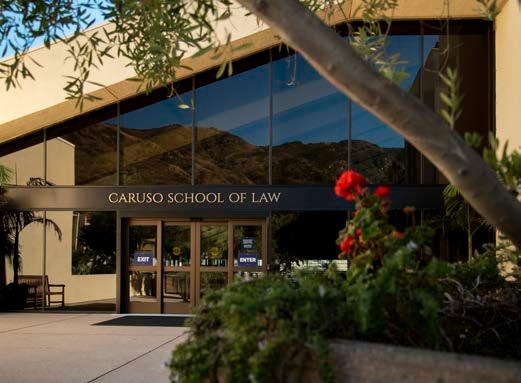
straus.pepperdine.edu 12
Straus Hosts First-Ever Mini-Study Tour in Dispute Resolution
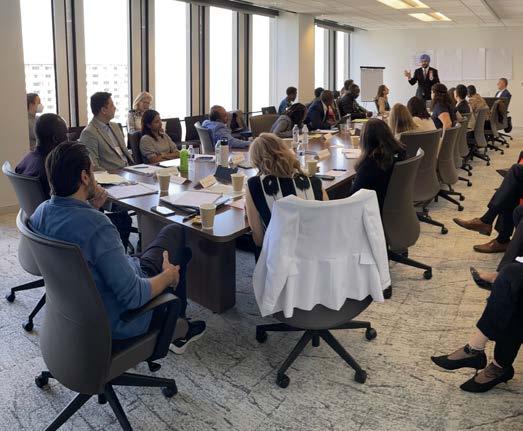
On September 8–10 the Straus Institute hosted a ministudy tour to San Francisco in coordination with JAMS and the Weinstein International Foundation. A select group of LLM students joined the tour, along with associate director Sherri Sturgeon (MDR ‘21) and professor Sukhsimranjit Singh, who serves as assistant dean of graduate programs.
The first-of-its-kind trip sought to encourage students pursuing their master of laws to more broadly explore the world of dispute resolution and cultivate the unique skills and cultural backgrounds of each individual that make resolving global conflicts possible. Joined by the Weinstein International Foundation fellows visiting from around the world, the students had the privilege of hearing from Singh on the role of mediation in international contexts and how each person can aspire to be a mediation leader in finding a way forward through many of today’s most complex international conflicts. The students had the opportunity to engage with the Weinstein fellows, creating space for unique conversations regarding the impact a mediator's skill set could have on today’s pressing conflicts. Along with the Weinstein fellows, also participating were some of the most notable voices in international mediation, such as Straus adjunct professor Leonardo D’Urso; former Rwandan chief justice Sam Rugege; judge Rebecca Westerfield, formerly of the Circuit Court of Jefferson County, Kentucky, and former Seventh Circuit judge Ann Claire Williams. In totality, the event included legal and mediation professionals from nearly 40 nations. The trip was well received by students and fellows alike. In the words of current LLM student Aisha Suleiman, who
hails from Nigeria, “I loved the diverse insights generated from the discussions about global issues and the practical solutions suggested on how to promote a peaceful resolution of cross-cultural conflicts.” LLM student Marcel Woitalla from Germany stated that, “The discussion with the entire group of ADR experts was very inspiring.”
A highlight of the trip was an alumni dinner at Braton, allowing current and past students to share in their passion for dispute resolution and creating the opportunity to explore where a degree from Straus could take them in their careers. The trip concluded with an afternoon of sightseeing around San Francisco’s most notable landmarks, enjoying all the metropolitan city has to offer.

13 Pepperdine University
Students MAKING WAVES
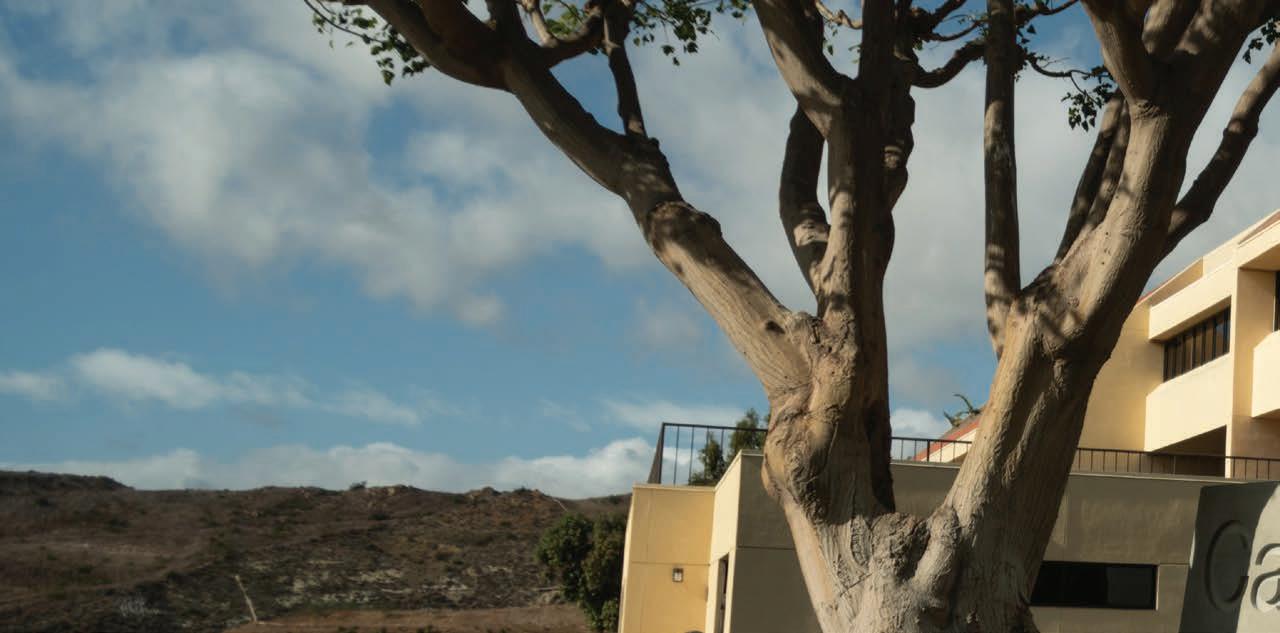
Pepperdine Caruso Law International Arbitration Team Places in Top 16 in Frankfurt Investment Arbitration Moot Court Competition
Pepperdine Caruso Law’s International Arbitration Team placed in the Top 16 competitors, on a global scale, in the Frankfurt Investment Arbitration Moot Court Competition, which took place from February 28–March 4. The team consisted of Paul Hettegger, Katerina Karamousalidou,
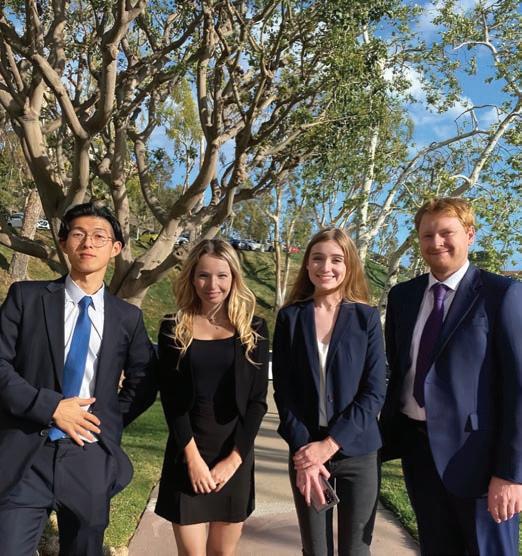
Sarina Marlin, and Wooseok (Paul) Shin as oralists, and Artūrs Kazāks as a coach. Professor Jack Coe provided guidance and support to the team.
The Frankfurt Investment Arbitration Moot Court is the oldest and most prestigious student competition in the area of investment protection law, co-organized by the Max Planck Institute for Legal History and Legal Theory, and Morgan, Lewis & Bockius LLP.
Shin stated, “This year’s moot problem allowed us to enhance our grasp of recent issues and trends in international investment arbitration, and to learn from the questions delivered by eminent scholars from all over the world.” The team enjoyed the oral pleadings and all of the preparation for this prestigious moot court.
He added, “As a team captain, I witnessed my teammates’ great endeavor and passion for this year’s interesting issues, based on the ECT arbitration under the ICSID Additional Facility Rules, including the fallout of the Achmea & Komstroy case, corruption in securing investment, necessity, and discriminative measures, and document production. Despite being busy with work and courses, we achieved this result because we have true aspirations toward international arbitration.”
straus.pepperdine.edu 14
Straus Students Selected for Externships at Renowned
Resolution Institute
Straus Institute LLM students Katerina Karamousalidou and Arjan Bir Sodhi were selected this year to pursue externships at the International Institute for Conflict Prevention and Resolution (CPR) in New York City. The institute drives a global prevention and dispute resolution culture through the thought leadership of its diverse member companies, leading mediators and arbitrators, law firms, individual practitioners, and academics. Through the Straus Externship Program, both Karamousalidou and Sodhi were able to secure externships at CPR and found the training to be invaluable in building their ADR careers.

Sodhi completed his externship last semester and authored seven articles on ADR developments, which covered emerging legal issues and topics.
“I assisted in-house counsel, law firm attorneys, and CPR executive staff presenting their work and observed mediations to learn the ins and outs of the process. I am grateful to my mentors and the Straus Institute for this incredible training; I could not have asked for a better experience in global ADR practice.”
Conflict Prevention and
Karamousalidou started her internship in January. She writes and publishes articles on cases and legislation, and assists counsel and CPR members for presentations by researching legal issues on topics of dispute resolution and new developments in ADR. Karamousalidou adds, “I also have the opportunity to observe mediation and arbitration sessions, attend CPR meetings with industry leaders and legal experts, and help with the preparation of the CPR 2022 Annual Meeting, which is focused on the theme of technology and alternative dispute resolution. The intersection of technology and ADR is one of the areas that I am really excited about, so the opportunity to work in this area feels very special.”
The Straus Institute offers dynamic externship experiences across industries for students in its LLM and master’s degree programs.

15 Pepperdine University
STRAUS Trains Los Angeles Police Department Personnel in Conflict Resolution
The Straus Institute was delighted to receive a grant from the JAMS Foundation to train Los Angeles Police Department officers, personnel, and community members on conflict resolution education and trust-building skills. In May and June 2022, Straus launched these trainings, which consisted of approximately 30 police officers and civilian personnel at varying levels of seniority and across multiple sectors of the police department. Serving diverse neighborhoods across the city and Los Angeles County, the professionals engaged in four days of training, including two days of asynchronous online learning and two days of skills and exercises in person
at Pepperdine University. The training was done in collaboration with the Los Angeles City Attorney’s Office’s Dispute Resolution Program, with its former director, Shaphan Roberts (MBA ‘16), formally joining the Straus Institute as director of online programs in May 2022. Participants’ in-person days included simulated mediation sessions, with experienced professionals coaching participants and offering real-time feedback. A third training session was held in mid-November and the institute will continue to execute these trainings— inviting community members to take part in the curriculum as well—in the New Year.
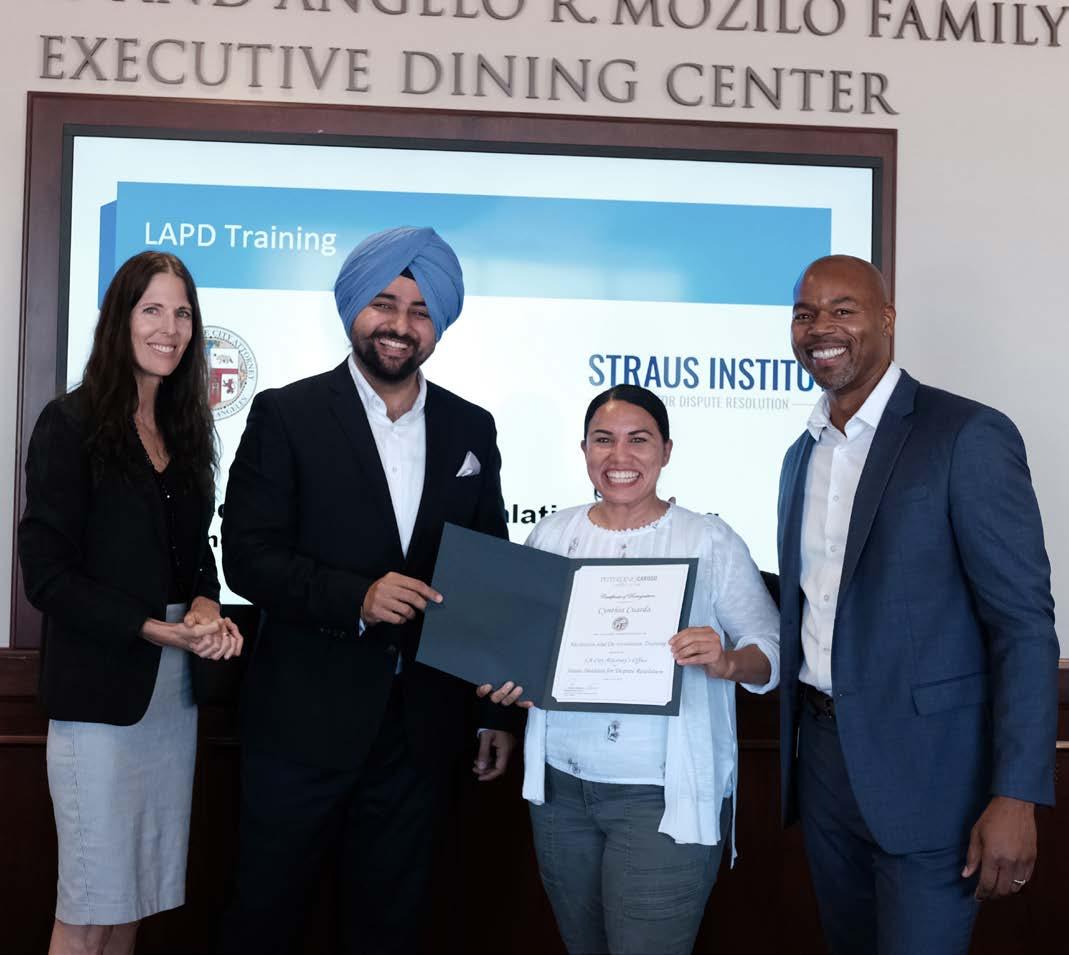
16
straus.pepperdine.edu
NEW LEADERSHIP IN ONLINE PROGRAMS
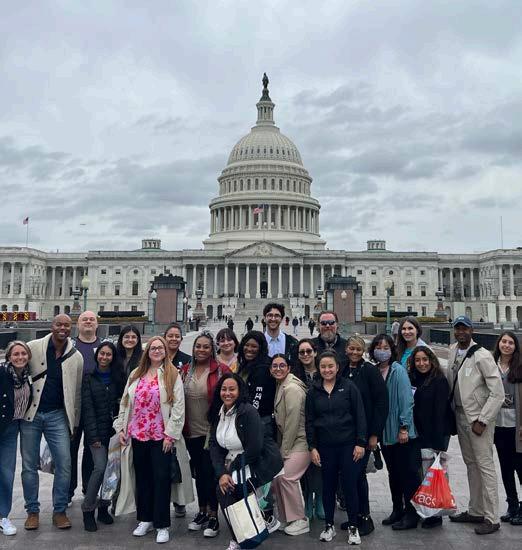
Shaphan Roberts (MBA ‘16) joined Pepperdine Caruso School of Law as director of online programs in late May 2022. In addition to managing online graduate law programs, Roberts also serves as an adjunct professor, teaching courses in mediation for the Straus Institute for Dispute Resolution, as well as for Caruso Law's online degree programs.
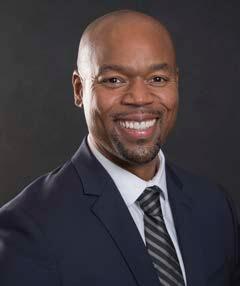
“We are pleased to have someone of Shaphan’s caliber join our team at Pepperdine Caruso School of Law. His experience in dispute resolution and program management will be an asset to our online initiatives,” stated Sukhsimranjit Singh. Jason Jarvis, associate dean of strategic initiatives, said “We're thrilled to have Shaphan's expertise for Pepperdine Caruso Law's online programs. I have great confidence that our online programs will thrive under his leadership.“
Roberts previously served as the director for the Los Angeles City Attorney's Dispute Resolution Program. In this role, he managed the coordination of all programmatic aspects of the Dispute Resolution Program, including community mediation, the Community Police Unification Program, and growth of the program in line with the goals of the City Attorney's Community Justice Initiative.
Roberts has also served as the head liaison with public and private alternative dispute resolution programs and has worked with federal, state, and local agencies as well as colleges, universities, and other community-based organizations. Additionally, he managed the recruitment, training, and certification of the DRP's volunteer mediator workforce. He is often requested to train city departments and community organizations on conflict management, de-escalation and cross cultural communication. Roberts earned his MBA from the Pepperdine Graziadio School's Presidents and Key Executives program.
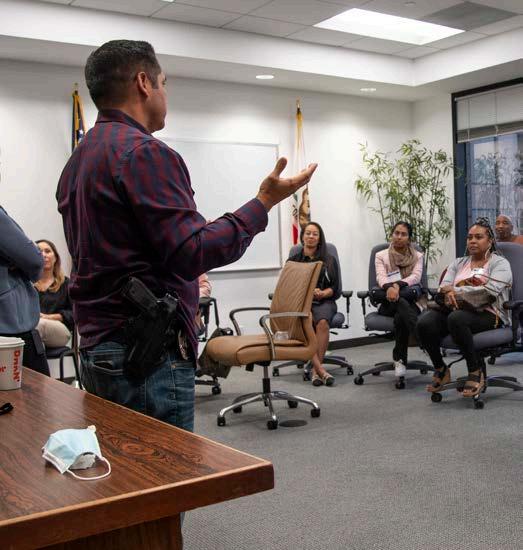 Online program students build connections through in-person residencies and study tours. Students on a study tour to Washington, DC, in October 2022.
Online program students hear from alumnus and police officer Christian Zuniga (MDR ‘19) about his work in Downtown Los Angeles.
Online program students build connections through in-person residencies and study tours. Students on a study tour to Washington, DC, in October 2022.
Online program students hear from alumnus and police officer Christian Zuniga (MDR ‘19) about his work in Downtown Los Angeles.
17 Pepperdine University
PEPPERDINE UNIVERSITY
Caruso School of Law Straus Institute for Dispute Resolution 24255 Pacific Coast Highway Malibu, CA 90263-4655
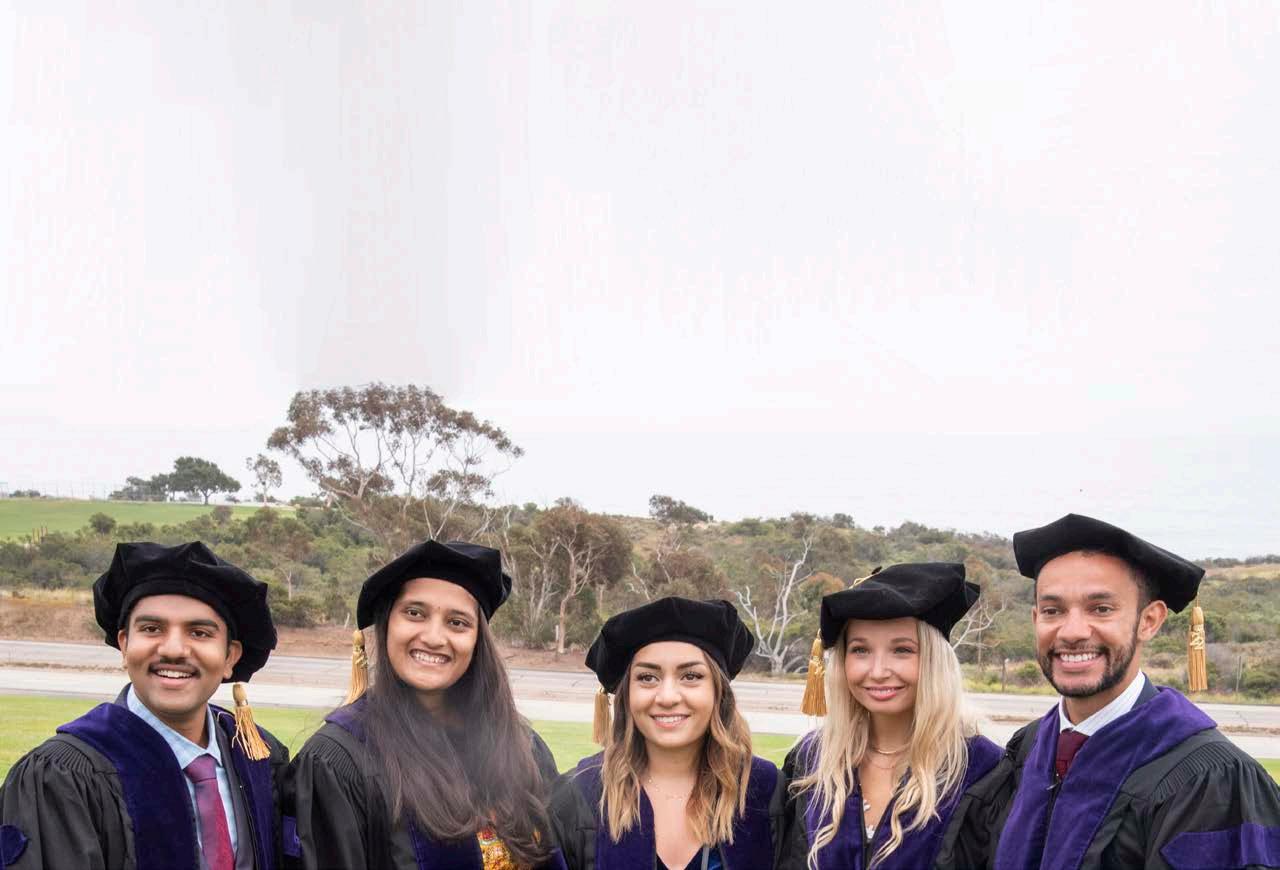
Upcoming
LS2110352
Straus Institute for Dispute Resolution straus.pepperdine.edu | dracademics@pepperdine.edu | 310.506.4655
Training Programs Women’s Negotiation Academy Online - February 2023 Mediating the Litigated Case Online - Spring 2023
Degrees � LLM in Dispute Resolution with Concentrations Available in Mediation, Arbitration, or Litigation � LLM in International Commercial Arbitration (ICA) � LLM in International Commercial Law and Arbitration (ICLA) � LLM in International Commercial Law and Dispute Resolution (ICLDR) � LLM in US Law � LLM in US Law and Dispute Resolution � Master of Dispute Resolution � Certificate of Dispute Resolution
ACADEMIC Programs and






 Sukhsimranjit Singh
Managing
Sukhsimranjit Singh
Managing











 Judge Ann Williams (Ret.)
Judge Ann Williams (Ret.)













 Online program students build connections through in-person residencies and study tours. Students on a study tour to Washington, DC, in October 2022.
Online program students hear from alumnus and police officer Christian Zuniga (MDR ‘19) about his work in Downtown Los Angeles.
Online program students build connections through in-person residencies and study tours. Students on a study tour to Washington, DC, in October 2022.
Online program students hear from alumnus and police officer Christian Zuniga (MDR ‘19) about his work in Downtown Los Angeles.










